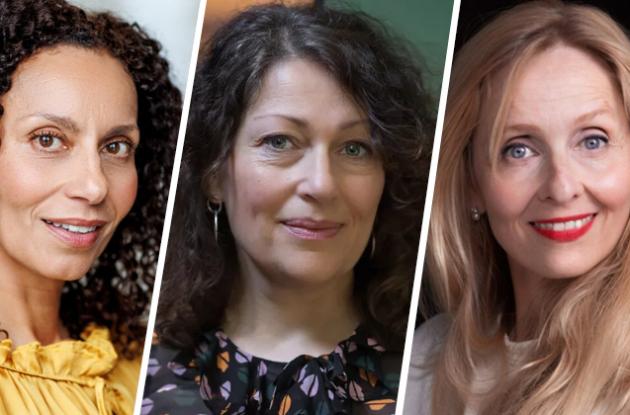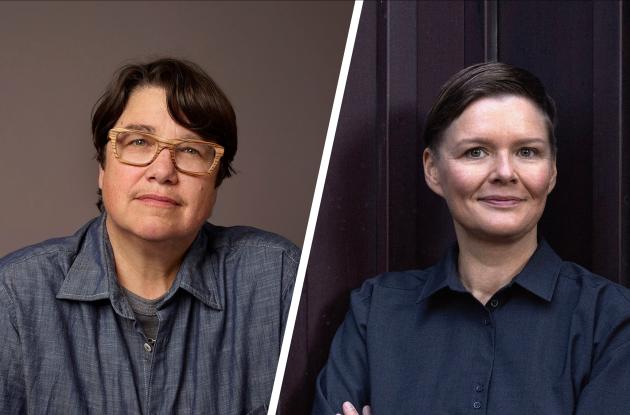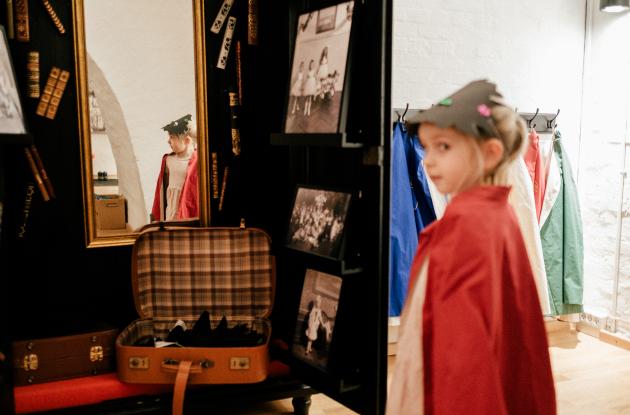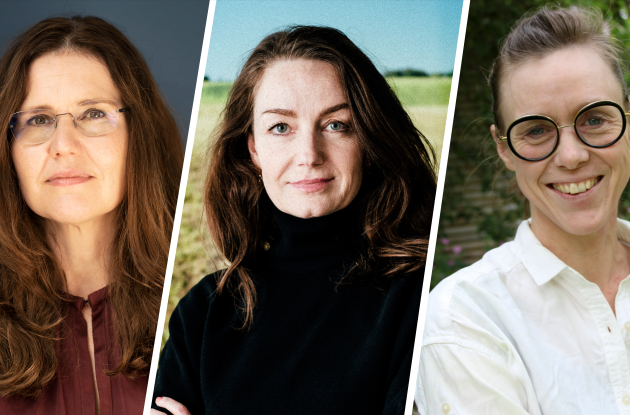International Authors' Stage: Elisabeth Åsbrink (SE) in conversation with Lise Bach Hansen
Meet one of Sweden's leading authors, Elisabeth Åsbrink, in conversation with Lise Bach Hansen on her new biography of the Swedish author Victoria Benedictsson.
The critics say
![]()
![]()
![]()
![]()
![]()
![]()
Six stars for excellent Swedish biography
- Jyllands-Posten
![]()
![]()
![]()
![]()
![]()
First of all, a gripping tale; an insightful, deep and sensitively drawn depiction of life and times [...] This is, I think, as close to Victoria Benedictsson as you can get
- Kristeligt Dagblad
My Beautiful Big Hatred lets Benedictsson emerge as the profoundly fascinating person and wildly modern writer she was, and makes it clear why we should all know her
- Weekendavisen
[...] An unfolding, poetic rendering not only of Victoria Benedictsson's tragic life in many ways, but also of her contemporaries and a really interesting and entertaining description of the morality feud; the heated debate that took place in the Nordic writing environment in the 1880s
- Information
In My Beautiful Big Hatred, the Swedish author Elisabeth Åsbrink unfolds one of the Nordic countries' most fascinating, artistic destinies: Victoria Benedictsson, a madly ambitious and dedicated artist who should merely have been the postmaster's wife in Scania, but who instead wrote herself into her time and challenged ideas about power, gender and art in ways that draw direct threads to our most pressing political discussions today.
She fought her way to the top in both the Stockholm and Copenhagen parnas and became closely associated with the world-famous Georg Brandes in Copenhagen. Her drive was enormous and the struggle to free herself from familial obligations was an effort that, like other iconic female artists, eventually led her into self-destruction.
In the midst of a modern breakthrough
In the second half of the 19th century, ground-breaking, radical ideas arose - "Problems were debated". Ideas about Enlightenment ideals, women's rights, a new view of sexuality, and democracy, and reason versus Christian morality. These were ideas that started in a literary movement with some of the Nordics' leading intellectuals and writers in burning passionate debate on how the new era should be shaped. Henrik Ibsen, August Strindberg and Bjørnstjerne Bjørnson, Ellen Key, Amalie Skram, Henrik Pontoppidan and many more.
At the centre of that storm was the literary critic Georg Brandes, an international, intellectual force of nature and a magnet who drew new thinkers from all over the Nordics to Copenhagen. Benedictsson also wanted to go to Denmark and her meeting with Brandes was to become a defining moment of her life. An unhappy love that would eat Benedictsson's insides.
In the descriptions of Benedictsson, Elisabeth Åsbrink also projects a picture of a time and a Copenhagen where everything is changing. Behind her exuberant descriptions lies an impressive amount of research, which she has partly placed in the archives at Royal Danish Library a few metres from the stage where she will now talk about the work.
Woman or human?
One of the revolutionary ideas debated during the modern breakthrough was women's freedom, rights and both male and female sexuality and gender. Benedictsson grew up as a girl who was allowed to run around freely with dirt under her fingernails on the family farm. Later she had to find herself put into the role of a postmaster's wife in a small village, until she managed to write herself into independence with books that quickly became bestsellers in her time.
She was buried under her male pseudonym Ernest Ahlgren at the cemetery Assistens Kirkegaard after a dramatic suicide in Copenhagen. One of the many ambiguous things in Benedictsson's life. And Åsbrink unfolds them with great empathy in the book. What was the reason, for instance, to Benedictsson's suicide? The unrequited love for Brandes? A consequence of the patriarchal system she lived under? The trauma she suffered as a child?
Both in death and in life, Benedictsson was multifaceted. When she managed to write herself out of her fate as the postmaster's wife, it is a feminist story, but many today will probably also point to the class journey she went through. And as a biographer, Åsbrink manages to put all the facets into play – something she will tell more about when she visits The Diamond in Autumn.
Participants
Elisabeth Åsbrink
Elisabeth Åsbrink is one of Sweden's leading writers. She received the August Prize for And in the Vienna Woods the Trees Remain in 2011 and was nominated for the same award in 2016 for the internationally recognised 1947 When Now Begins. Åsbrink's fiction debut was the autobiographical Abandonment from 2020. She is currently working on the biography of the Swedish author Victoria Benedictsson My Beautiful Big Hatred.
Lise Bach Hansen
Lise Bach Hansen is the curator responsible for International Authors' Stage and has previously interviewed Siri Hustvedt, Alex Schulman, Linn Ullmann and Mathilda Gustafsson - when, with her novel The Club, she unravelled a major #metoo case in Swedish cultural life and kick-started the #metoo wave throughout the Nordics. Lise Bach Hansen is also involved in many larger Nordic cultural contexts.




